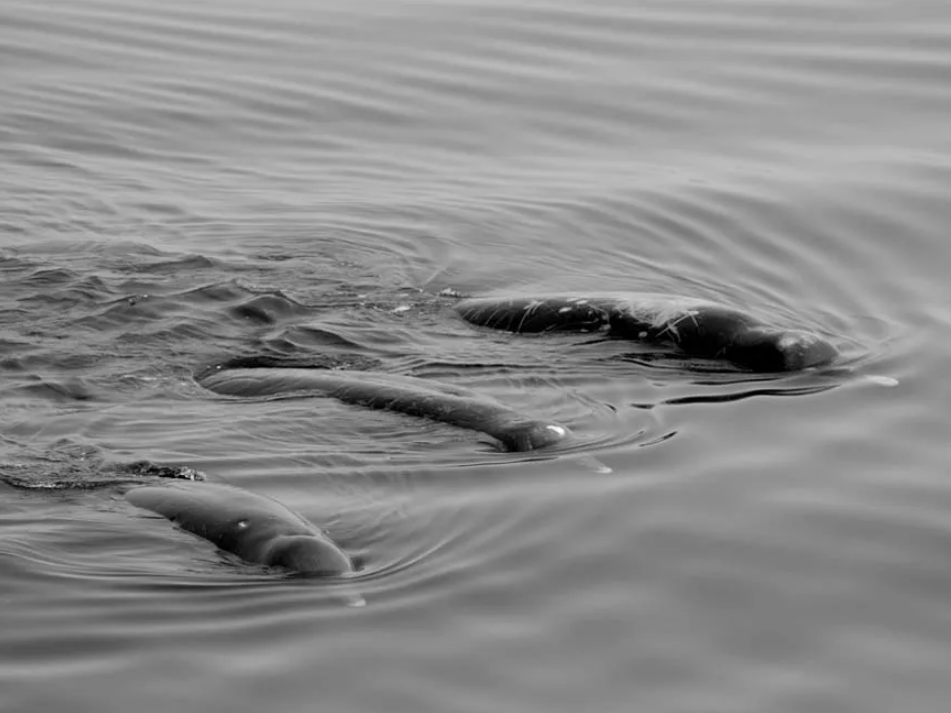New whale species discovered in ocean off Japan
Occasional sightings by whalers were well documented, but a beached whale in 2012 helped provide detailed evidence of previously unrecognised creature

Japanese whalers have long known of the existence of a rare kind of beaked whale which has been spotted in the north Pacific Ocean, but it had not been officially recognised as a separate species, until now.
The whale, which is smaller and darker in colour than the Baird’s beaked whale, had eluded research teams for years.
But fresh examination of the remains from several specimens have revealed the whale is indeed a separate species and has been named the black Baird’s beaked whale or Berardius minimus.
Beaked whales prefer deep ocean waters and have a long diving capacity, making them hard to see and their behaviour is not well documented.
Describing the species for the first time in the journal Scientific Reports, the research team led by Professor Takashi Matsuishi of Hokkaido University, collected six stranded unidentified beaked whales along the coasts of the Okhotsk Sea.
“Just by looking at them, we could tell that they have a remarkably smaller body size, more spindle-shaped body, a shorter beak, and darker colour compared to known Berardius species,” said Tadasu Yamada of the National Museum of Nature and Science, who was also on the research team.
“There are still many things we don’t know about B. minimus,” said Professor Matsuishi.
“We still don’t know what adult females look like, and there are still many questions related to species distribution, for example. We hope to continue expanding what we know about [the species].
The research team said the external appearance of the whale is mostly known from a male individual found stranded on 10 November 2012 in Sarufutsu, Hokkaido.
Though there appears to be a significant colour difference between the greyer Baird’s beaked whale and the new species, the researchers said “the colour difference mainly depends on the scar density and is not biologically fundamental”.
They also noted the maximum body size recorded among the black species so far is 6.9 metres, compared to 10 metres among their better-known cousins.
Local Hokkaido whalers refer to some whales in the region as Karasu (crows).
It is still unclear whether the newly identified B minimus and Karasu are the same species or not, and the research team have suggested it is possible Karasu could be yet another different species of whale.
Join our commenting forum
Join thought-provoking conversations, follow other Independent readers and see their replies
Comments
Bookmark popover
Removed from bookmarks